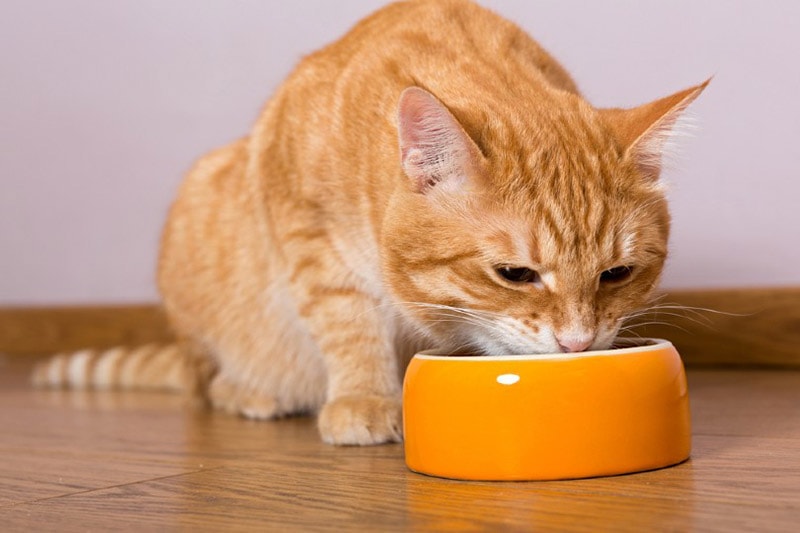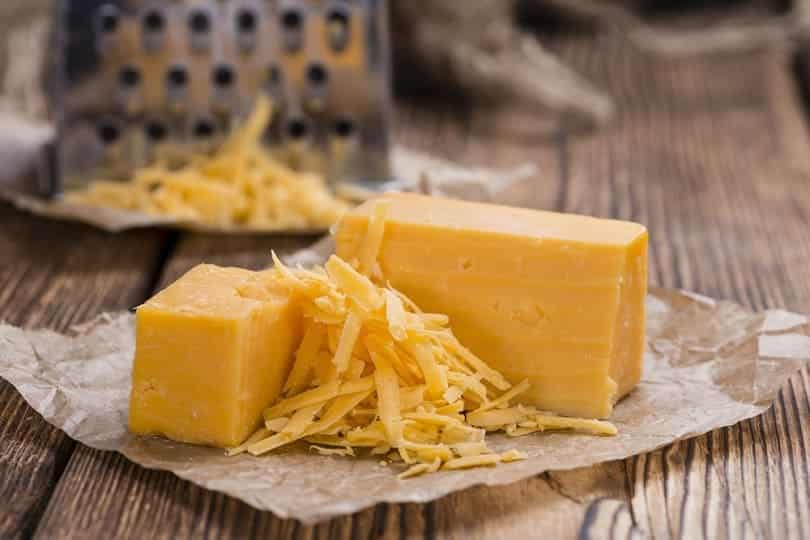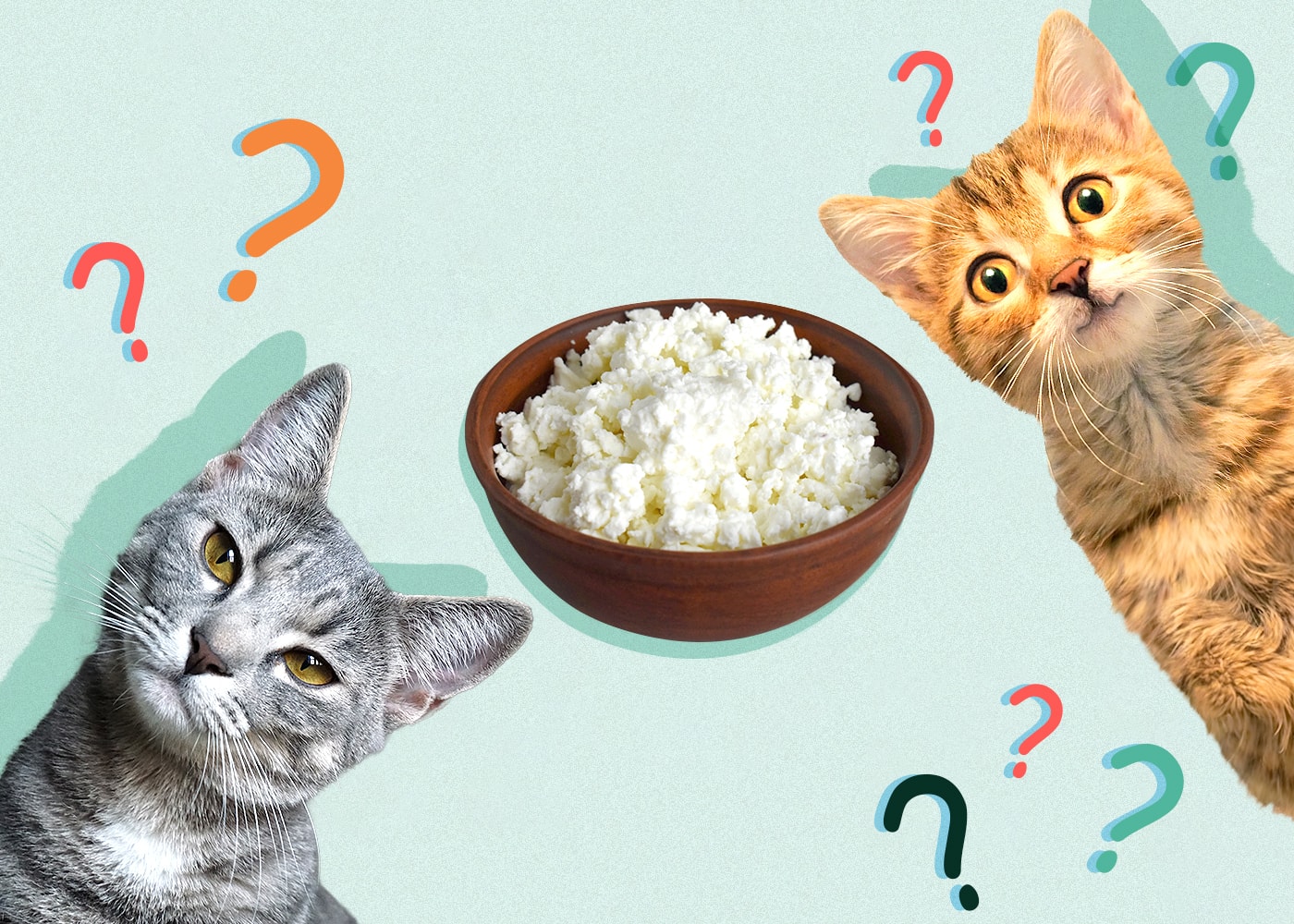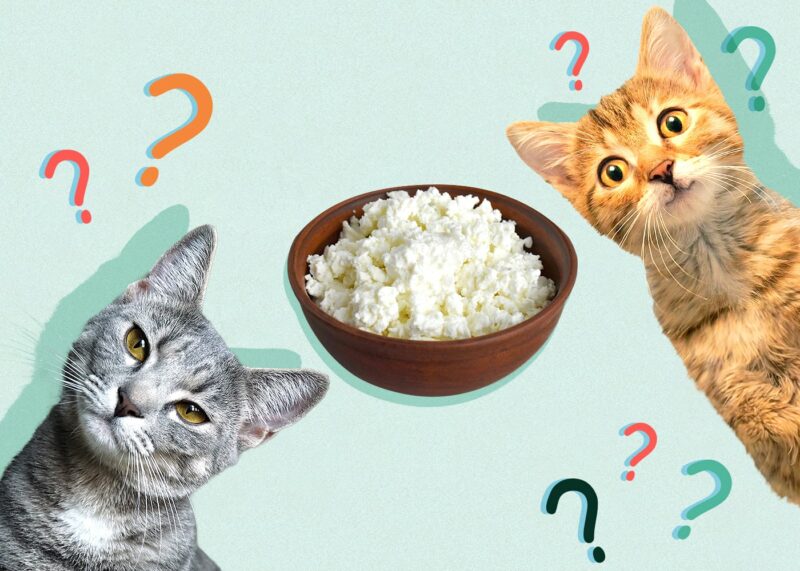You know cats are picky eaters, but cheese is the one salty treat that they love. You can feed cottage cheese to your cat, but only in moderation. Some vets recommend using cheese to sneak pills into the cat after draining the liquid from the cheese.
Cats fall for cheese’s consistency, and you can use it to entice them by adding it to their wet cat food. In this post, you’ll learn all there is to know about feeding cheese to your cat.
Is Cheese Bad for Cats?
Cheese is lower in lactose than other dairy products like yogurt and is a good protein source. However, as you learn more about your furry friend’s digestive system, it becomes clear that while most cats can tolerate small slices of cheese, their digestive system’s design does not work well with dairy products.
For this reason, providing even the tiniest bits of cheese to lactose-intolerant kitties can create havoc in their digestive tracts. Despite the widespread belief that cats love milk, dairy isn’t a natural part of a cat’s diet, and your cat can struggle to digest any dairy product. Cats require a carnivorous diet since their systems are designed to process meat products.
The reason they might crave dairy is because of the protein and fat contained in it. Sadly, most cats are lactose-sensitive, and cheese can upset their digestive tract.

Felines are sensitive to dairy products because while most humans and other animals produce lactase enzymes that break down the lactose in dairy products, a typical cat’s body does not. For this reason, a cat’s intestinal tract has a hard time processing dairy.
However, since many cats love the smell and feel of cheese, they lack control over their consumption of dairy products. If a lactose-intolerant cat eats cheese, it can disrupt their digestive system, and they may exhibit clinical signs like:
- Constipation
- Diarrhea
- Vomiting
- Gas
- Inflammation
- Itchy/Red skin patches
- Hair loss
Similarly, cheese should not be given to cats that are obese and need to lose weight. Foods like cheese, bread, fast food, and potato chips aren’t suitable for cats. Cheese has a high-caloric content, and it would be helpful if you only serve it as an occasional treat to prevent weight-related issues.

The 2 Types of Cheese to Feed Your Cat
If you sneak cheese into your cat’s food, you’ll be glad to know that certain varieties of cheese may be better than others. There are non-dairy or non-fat varieties like cottage cheese that are designed for lactose-intolerant consumers. They have their lactose removed and supplemented with the correct enzymes so that lactose-sensitive guts can break them down quickly.
However, you should only serve a small portion to your cat since the cheese is still fatty and can upset their stomach. Besides cottage cheese, other varieties include:
1. Cheddar

Cheddar is the most popular cheese in the United States and is suitable for lactose-sensitive individuals. It is semi-hard and does not contain much lactose. While the lactose amounts in the cheese are minor, you shouldn’t overfeed your cat as it can still cause stomach issues.
2. Swiss
Most people consider Swiss cheese safe for humans because, just like Cheddar, it has low lactose, sodium, and fat but is high in protein. Regardless, if you feed Swiss cheese to your cat, only do it in very limited amounts.

The 3 Types of Cheese to Avoid
1. Gouda
Soft cheese, especially gouda, is unsuitable for cats, whether raw or cooked. It poses a health hazard because it contains high amounts of lactose.
2. Brie
Brie is also a soft cheese and is made with raw milk. Unfortunately, camembert is also high in lactose and fat, making it unsuitable for cats.
3. Blue Cheese
Dairies use a mold known as Penicillium to make blue cheese. This mold can be toxic to cats.

Can Kittens Eat Cottage Cheese?
You might think cheese is suitable for kittens because they consume their mother’s milk. What makes kittens tolerate their mother’s milk is that they produce a few lactase enzymes that allow them to digest and absorb milk naturally.
However, enzyme production among kittens gradually reduces when they start weaning. The kitten’s ability to digest dairy products disappears as soon as they adapt to solid cat food. Therefore, it would be best to stop offering dairy products, including cottage cheese.
Plus, kittens have strict nutritional requirements, and they require the proper nutrients to facilitate their growth and development. If you feed cottage cheese or any other cheese to your cat, they can develop intestinal issues, causing digestion problems like loose stools that could damage their developing intestines and immune systems.
Learning about what your cat can and cannot eat is a crucial part of keeping them happy and healthy! Choosing a bowl to serve cat-friendly foods in is another important decision pet owners face. Satisfy the specific needs of your cat with the innovative design of the Hepper NomNom Cat Bowl. Learn why it’s our (and our cats!) favorite food and water dish here. At Catster, we’ve admired Hepper for many years and decided to take a controlling ownership interest so that we could benefit from the outstanding designs of this cool cat company!
Summary
Cats are curious creatures, and many are tempted by cheese and other products with lactose. While it isn’t wrong to serve a bit of cottage cheese to your feline companion on occasion, you should consider their dietary needs beforehand.
The bottom line is that cats can enjoy cottage cheese as treats, but if they are lactose-intolerant, cheese may predispose them to severe reactions and negatively affect their health.
See Also:













